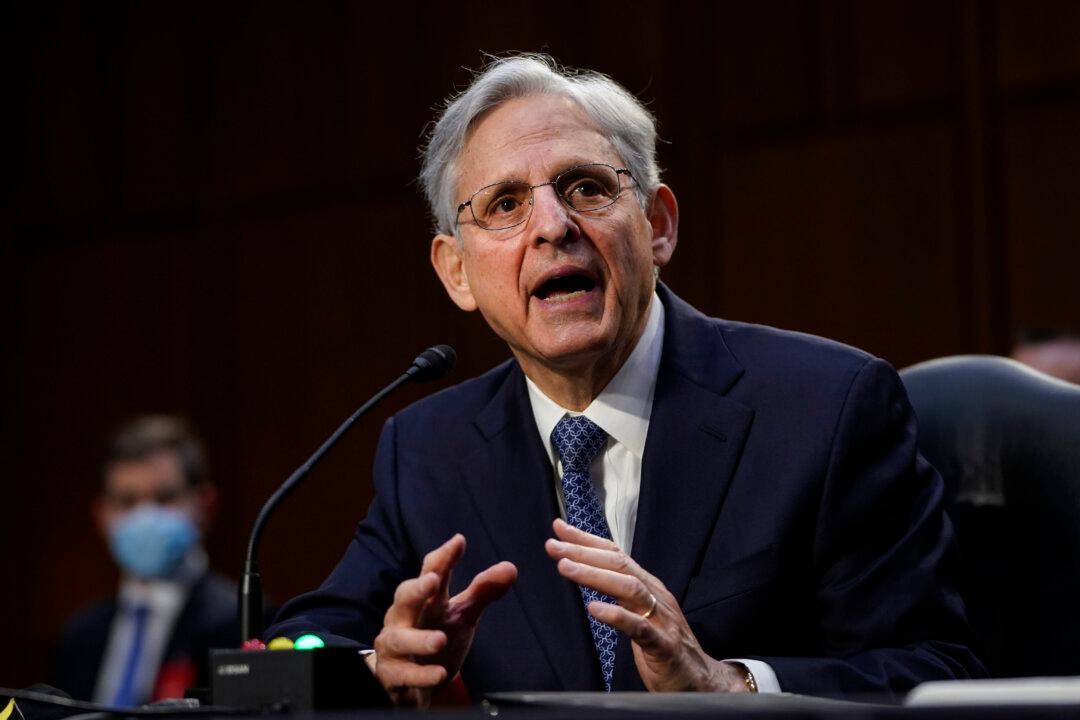Attorney General Merrick Garland has vowed to uphold one standard of justice on his first day leading the Department of Justice, echoing comments made by his predecessor William Barr during Barr’s tenure.
Garland addressed the whole of the Justice Department (DOJ) on Thursday where he reiterated his promise to apply one standard of justice across all cases handled by the department.




